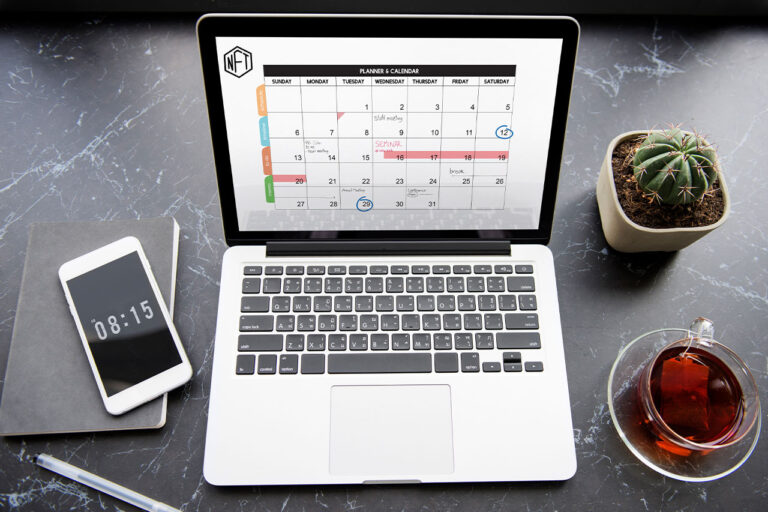The cryptocurrency industry is a wild one. It’s not just that the value of cryptocurrencies like Bitcoin and Ethereum can skyrocket. Still, it’s also that they can plummet in value—and quickly.
That’s why making sure your crypto holdings are secure is essential. It would be devastating if a hacker got into your wallet and stole all the money in it!
Table of Contents
How to Secure Your Crypto Wallets
Keeping your crypto wallet safe can come in many ways:
Make Sure You Have a Strong Password
To protect your cryptocurrency wallet, you should create a strong password.
You’re asked to create a password when you create an account on a cryptocurrency exchange. This password allows you to log into your account and access your digital currency.
Choosing a password with at least nine characters that are not easily guessable and contains upper and lowercase letters, numbers, and special symbols is essential.
A good way to remember a phrase is to use an easy-to-remember phrase that starts with the first letter of each word in it. For example: “My dog likes peanut butter.” This could become “Mydolikespeanutbutter!” or something similar.
Never Share Your Private Keys
Never share your private keys.
It’s a simple rule that can keep you from losing your cryptocurrency wallet if you’re not careful.
Private keys are numbers and letters that allow you to access your wallet and move funds out. They’re like a password for your wallet, except no one can change them once they’re set up. They’re also very long—generally 256 characters or more, so there’s no way someone could guess what they are.
That means that if you accidentally share your private keys with someone else, they will be able to take all of your money.
Never Store Your Wallet on an Exchange Platform
While it seems like a good idea at first—you can easily access your funds from anywhere and at any time — the truth is that this type of storage leaves you vulnerable to hackers. That’s because it’s much easier for them to compromise your account if they can access your private keys.
The safest way to store cryptocurrency is on a hardware wallet, such as Trezor or Ledger Nano S. With these wallets, there are no risks of someone hacking into them and stealing your money because they aren’t connected to the internet. The only way people can access the funds stored within them is with physical access to the device itself!
Use Two-Factor Authentication Whenever Possible
Two-factor authentication requires a person to provide two pieces of information (e.g., password and PIN) to log onto an account or other resource.
Two-factor authentication is an essential part of securing your cryptocurrency wallet because it increases the security of your account without much effort on your part. If someone wanted to access your funds without your knowledge, they would have to break through both layers of security—which would be difficult if not impossible for even the most determined hacker.
Keep Your Private Keys in a Safe Environment
One of the biggest security risks with cryptocurrency wallets is that they store your private keys online. So if someone hacks into your wallet, they can steal the amount of bitcoins or other cryptocurrencies you have.
There is an easy way to secure your wallet, however! You can store your private keys in an offline environment. A hardware wallet will protect your money from hackers so long as you never let anyone else use or touch it.
Run Regular Virus Scans
If you’re using a cryptocurrency wallet, keeping it safe from malware and viruses is essential. But, of course, it’s also important to keep your device safe from malware and viruses, which is why running regular virus scans on your device and your cryptocurrency wallet is essential.
This is so important because if you don’t have antivirus software installed on both of these things, they can easily become infected with malware or a virus. This will cause problems with how the device or wallet works, or worse yet, hackers could use it to steal information from either of them.
Be Wary of Phishing Emails
Phishing emails are a common tactic among hackers, who use them to steal personal information like credit card numbers and passwords.
Many of these emails look like they’re coming from legitimate companies and services, but they aren’t. They’re fake! An email containing malware can come in many forms, including requests for you to click on a link or open an attachment.
Don’t click on links in untrusted emails or download files from untrusted sources to protect yourself from phishing emails. Instead, go directly to the website or service they claim to be from and check if you have concerns.
The Takeaway
Keeping your crypto wallet secure is one of the most important things you can do to protect yourself against cryptocurrency risks.
If you’re new to crypto, it’s essential to learn to keep your wallet secure, so you don’t lose all of your money. However, suppose you’re an experienced trader. In that case, ensuring that your security practices are up-to-date and effective is essential.
If cryptocurrency is a topic that seems to pique your interest, then check out our blog now! We offer tons of blogs that might be of interest to you.





















+ There are no comments
Add yours